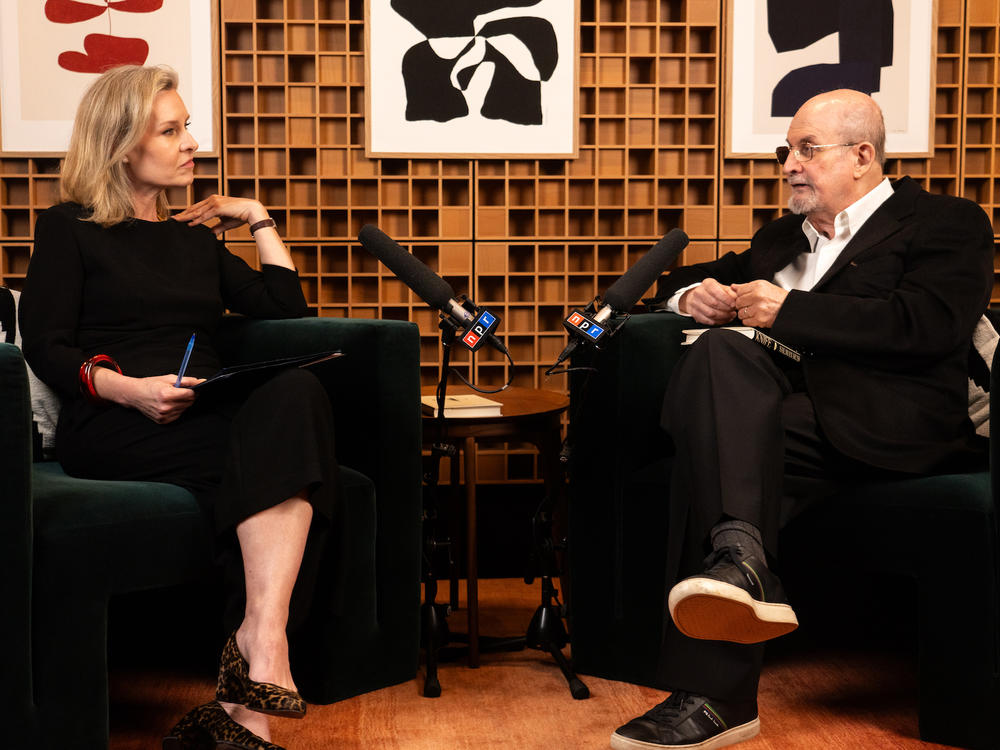Section Branding
Header Content
What happened when the threat of danger became Salman Rushdie's reality?
Primary Content
You're reading the Consider This newsletter, which unpacks one major news story each day. Subscribe here to get it delivered to your inbox, and listen to more from the Consider This podcast.
1. A career-marking controversy.
Novelist Salman Rushdie gained critical acclaim and international recognition, with his 1981 title Midnight's Children.
But Rushdie is probably most closely associated with his 1988 novel The Satanic Verses, a book inspired by the life of the prophet Muhummad. The book was notorious not just for its contents but because of the intense backlash, and the threat it posed to his safety and wellbeing.
While Rushdie saw it as an exploration of Islamic culture, some Muslims saw it as blasphemous.
In an earlier interview with NPR, Rushdie noted that, "Ironically, one of the sad things about this whole affair is that this book could actually have done something to introduce Western readers, not just to the literal details of the life of the prophet, but to the spirit of a different culture and of a different way of looking at things."
2. Fear and the unthinkable.
The year after the publication of The Satanic Verses, Iran's supreme leader issued a fatwa, ordering Muslims to kill Rushdie. For years, he was forced to live in hiding with armed guards, and even adopted an alias for his writing. But around the turn of the century, he says, the Iranian leaders, "Called off the dogs."
Rushdie moved to New York in 2000, and was able to resume the public life of a popular author, attending panels, giving speeches, and settling into what he presumed to be his new normal.
On August 12th, 2022, all of that changed. A young man charged at Rushdie while he was on stage at an event. The man stabbed Rushdie at least a dozen times.
3. Moving forward.
In the moments where he realized what was happening, Rushdie says he experienced a sense of recognition.
"Here you are. I say in the book something to the effect that it felt like he was a time traveler, somebody emerging out of the past," he told NPR's Mary Louise Kelly.
Rushdie suffered multiple stab wounds, a damaged liver, and severed nerves in his hand. He had to be on a ventilator and lost his left eye.
After two years, he has chronicled his brush with death, and the aftermath in his new memoir KNIFE.
For sponsor-free episodes of Consider This, sign up for Consider This+ via Apple Podcasts or at plus.npr.org. Email us at considerthis@npr.org.

